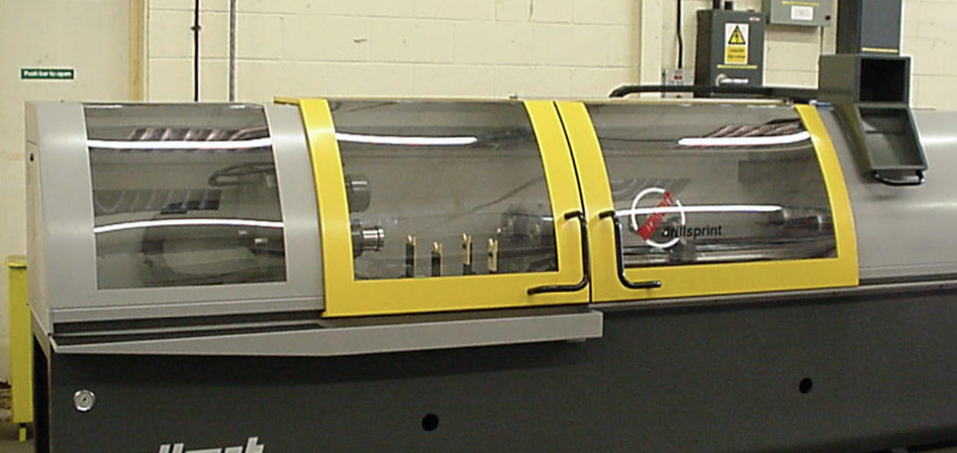Machinery Safety Information
OSHA Safety Regulations for Industrial Machines and Equipment
ANSI Standards for Interlocked Guards
Interlocked Guards Overview
With the release of ANSI 11.19 (2010) - Performance Criteria for Safeguarding, it consolidated all of the design, installation, operation and maintenance of Fixed Guards into a single American National Standards Institude (ANSI) standard.In the 2010 release of ANSI 11.19 there were two fundamental changes:
This significantly simplied the process of determining whether a guard met the current ANSI standads, as there is now a single unified standard for all safeguarding.ANSI B11.19 (2010) now applies to ALL machines and equipment. There is no longer any difference between the guarding standards for: Point of Operation Mechanical Transmission Apparatus
For more on the ANSI B11.19 (2010) standards release, see ANSI Standards for Machine Guarding

An example of an interlocked guard door
Definition:
Guard: A barrier that prevents exposure to a hazard.Fixed Adjustable Interlocked Perimeter
Performance Requirements
Within the ANSI B11.19 (2010) Performance Criteria for Safeguarding, there are a number of important requirements. Note that these requirements apply to both Fixed and Interlocked Guards:
7.1.1 Material used in the construction of guards shall be of such design and strength as to protect individuals from identified hazards.
7.1.4 The design and construction of the guard shall ensure that individuals cannot reach the hazard by reaching over, under, around, or through the guard.
7.2.1 Location of the guard with respect to the hazard shall ensure that individuals cannot reach the hazard by reaching over, under, around, or through the guard.
7.1.5 Guards shall be designed and constructed so as to ensure ease of use.
7.1.6 The guard shall be designed and constructed to provide visibility of the hazard zone appropriate to the particular operation.
There are, however, many additional requirements that apply to Interlocked Guards. These include:
7.2.4 The interlocked guard(s) shall be prevented from opening until the hazard has ceased, or shall be located so that an individual cannot reach the hazard before cessation of the hazard when the interlocked guard is opened.
7.1.9 Interlock devices used in conjunction with guards shall be specifically designed and constructed for use in safeguarding applications.
For ANSI B11.19 standards on fixed guarding, see: ANSI Standard for Fixed Guards
For ANSI B11.19 standards on light curtains, see: ANSI Standard for Light Curtains
For training on OSHA and ANSI methods of machinery and equipment guarding, see: OSHA and ANSI Training
Training & Seminars
OSHA Training
Safety Training
Advanced, high-level training Customized to your machines On-site at your facility Personalized to your needs Taught by a machine safety expert
 The most useful links, and the most helpful info for those using machinery and automated equipment.
The most useful links, and the most helpful info for those using machinery and automated equipment. There is a wealth of information within this site...
Useful Links
OSHA App: An iPhone app with all OSHA Regulations.
Expert Witness: An Expert in Machines, Manufacturing, and Automated Equipment.






